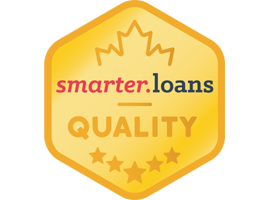When it comes to addressing short-term financial needs, people often find themselves deciding between two popular options: loans and credit cards. Each of these financial tools has its pros and cons, but depending on your specific financial situation and objectives, one may be a better choice over the other. In this article, we’ll explore the key differences between loans and credit cards and explain why, in many cases, loans might provide greater advantages.
Credit Cards: Flexibility with Higher Costs
Credit cards are widely used for both everyday purchases and emergency expenses. Their main appeal lies in convenience, as they allow for revolving credit, meaning you can borrow money up to your credit limit and pay it off over time. They are often best suited for managing smaller, recurring expenses.
Advantages of Credit Cards:
- Flexibility: You can use credit cards for a wide range of purchases, from groceries to online shopping. There’s no fixed repayment schedule, and you’re only required to make the minimum payment each month.
- Rewards: Many credit cards offer reward points, cashback, or travel miles, which can be an attractive bonus for regular users.
- Quick Access to Credit: Most credit card approvals and limits are processed quickly, giving you near-instant access to funds.
Disadvantages of Credit Cards:
- High Interest Rates: Credit card interest rates are notoriously high, often ranging between 15% to 25% or more. If you carry a balance month-to-month, you’ll end up paying a lot more than the original cost of your purchase.
- Temptation to Overspend: Because credit cards make it easy to buy now and pay later, it can be tempting to overspend, which leads to long-term debt accumulation.
- Minimum Payments Trap: While making minimum payments each month helps you avoid late fees, it doesn’t do much to lower your balance. Interest continues to accrue, meaning you could stay in debt for years if you’re not paying off your full balance regularly.
Loans: Structured Payments and Lower Interest Rates
Loans, on the other hand, provide a more structured approach to borrowing. Whether it’s a personal loan, payday loan, or other types of short-term loan, you receive a lump sum upfront and are required to make fixed monthly payments over a predetermined period of time.
Advantages of Loans:
- Lower Interest Rates: Generally, loans tend to have lower interest rates compared to credit cards, especially if you have a good credit score. This can lead to significant savings, particularly if you’re borrowing a larger amount.
- Fixed Payments: Loans come with a fixed repayment schedule. This predictability makes it easier to budget, as you’ll know exactly how much you owe each month and when the loan will be fully paid off.
- Borrow Larger Amounts: If you’re facing larger expenses such as medical bills, home repairs, or consolidating existing debt, loans allow you to borrow significantly more than what most credit cards offer as a limit.
- Debt Consolidation: Many people use loans to consolidate credit card debt or other forms of high-interest debt into one manageable payment with a lower interest rate.
Disadvantages of Loans:
- Less Flexibility: Once you take out a loan, you’re locked into a repayment plan with fixed amounts. This can be less flexible compared to credit cards, which allow you to pay as little as the minimum each month.
- Approval Time: Depending on the type of loan, the approval process can take longer compared to a credit card. However, many lenders offer quick personal loan approvals.
Why Loans Are Often a Better Choice
When comparing loans and credit cards for short-term financial needs, loans tend to offer a better solution in several key areas. First and foremost, loans often come with lower interest rates, especially when compared to the high APR of most credit cards. This can make a big difference when you’re borrowing larger sums, as the interest you save with a loan can be substantial.
Additionally, loans offer fixed repayment terms, which help you stay disciplined. With credit cards, it’s easy to only make minimum payments, leading to extended debt. However, with a loan, you’ll have a set timeframe and a clear end date for when your debt will be repaid, giving you more control over your financial situation.
Moreover, if you have a larger expense or are looking to consolidate debt, loans give you the ability to borrow more and pay it off at a lower cost. Credit cards, with their lower limits and higher interest rates, are not as well-suited for large expenses or long-term borrowing.
Conclusion: The Right Tool for Your Financial Needs
For small, everyday purchases and short-term needs, credit cards offer convenience and rewards. However, for larger financial needs or if you’re aiming to save on interest, loans provide more advantages, including lower rates and predictable payment schedules.
If you’re in need of a loan, consider the options provided by SkyCap Financial, which offers personal loans with competitive rates and flexible terms to help you manage your financial needs responsibly.
In the end, the best option will depend on your financial situation, but for those seeking to minimize interest costs and have clear, structured payments, loans often emerge as the superior choice for short-term financial needs.






